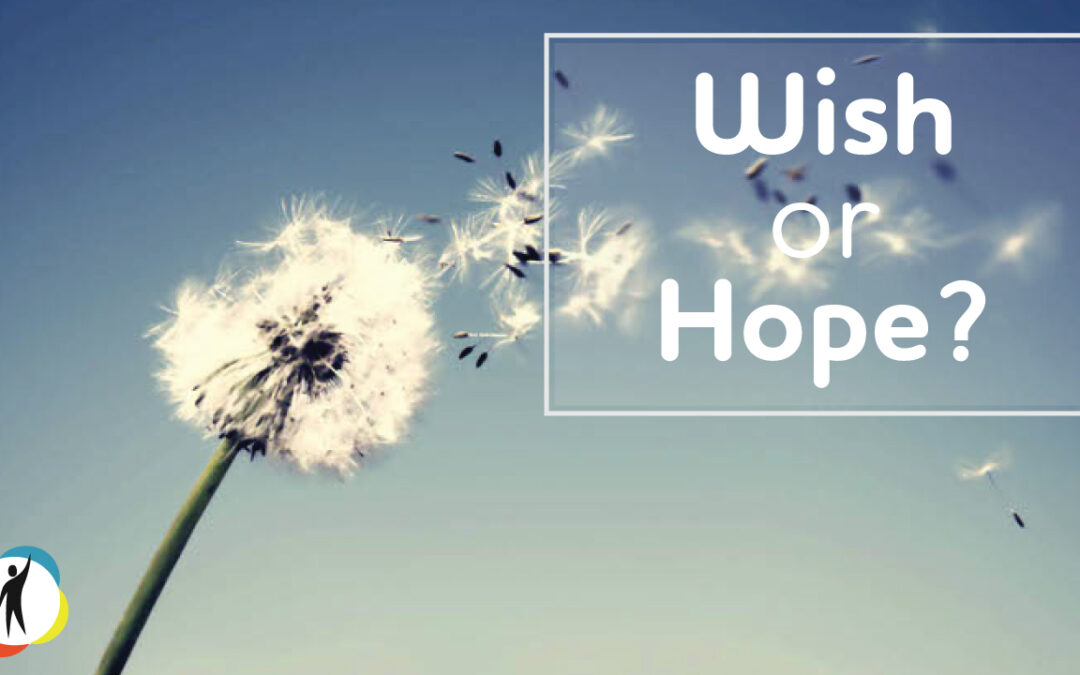I recently tested positive for Covid-19 but, don’t worry, I had no symptoms whatsoever, and have now come to the end of my period of self-isolation. When I mentioned this news to one of my students, she sent me a message saying, ‘I wish everything will be okay for you and your family’. After such a kind message it’s probably not appropriate to correct the grammar of the sender, but her incorrect use of ‘wish’ instead of ‘hope’ made me think about the difference between these two verbs, which are similar in sentiment, but have quite different applications.
To ‘hope’ and to ‘wish’ are similar because they both refer to ‘unreal’ future actions and states that haven’t yet, or may never, happen. Although they both talk about desires, there are important differences in when you would use each of them.
To wish – a ‘magical’ desire / something which can’t be changed / a regret
When we talk about ‘wishes’, we often associate them magic in children’s stories and fairy tales. So, when we talk about ‘making a wish’ for something unexpected to happen, it is as if by an act of pure magic, and not based on any reality or evidence. Similarly, when we wish someone a ‘Merry Christmas’ or a ‘Happy Birthday’, we are not saying that we can make that happen, but that through some mystical power of thought, that we might make it so.
When we say that we ‘wish’ something, we are talking about something which you would like to change, but which we cannot, either because it has already happened or because it is not within our capability to change. When we say, ‘‘I wish I had more confidence’’, it means that we think it is unlikely to transpire. ‘’I wish the baby would stop crying’’ means that we think that it is not within our control and unlikely to happen.
To ‘wish’ is also used to talk about things that have already happened, and so we are unable to change, but which we regret, and we say that we ‘would change’ if we could go back in time to before the event. People often say things like ’I wish I had’ or ‘hadn’t’ done something, because if they ‘had’ or ‘hadn’t’ done it, then things would now be better. For example, ‘’I wish I had listened to my parents and taken their advice’’, means that we didn’t take their advice, and that now it’s too late to do so, and probably that things are not as good as they would have been, had we listened to them. We can’t, however, say ‘‘I hope I had listened to my parents’’, because this would suggest that we can still change the situation, which we can’t because it has already happened.
To hope – a result which could be changed / a possibility
A ‘hope’ is usually something that we talk about becoming a reality in real life, especially if it is due to hard work or effort. For example, a parent might say of their child ‘’I hope that she does well in her exam, she has worked very hard…’’ We also use ‘hope’ to talk about a desired result after a perceived difficulty or possible problem. For example, ‘’your mother hasn’t been well well recently, I hope she feels better soon’’.
If we say to someone, ‘’We hope you have a safe journey’’ or ‘’I hope she sleeps well tonight’’, we are talking about something which is a real possibility, and that the desired result or possibly within our control.
Although we use the verb ‘hope’ to talk about something which is a possible future event or state which we desire, it also used to talk about something which might already have happened or exist, but you don’t yet know if this is the case. For example, when we know that a friend has missed the bus, we might say much later in the day ‘’I hope he arrived at work on time this morning’’. Until you know if he arrived at work on time, or not, you could still say ‘hope’.
So, when you regret something has already happened, that nothing will change, or you have no power to change it, you say ‘wish’. However, until you know for sure that you can’t change the situation, or that the result is not yet known, use ‘hope’. So, to return to the message sent to me by my student, what she really meant to say was not ‘I wish everything will be okay for you and your family’, but ‘I hope everything will be okay for you and your family’.
If you have enjoyed reading this blog, please ‘like’ it and share it with your friends and colleagues, and if you know anyone who might be interested in my online one-to-one lessons, please do ask them to contact me to discuss how I can help them to excel in English.


Recent Comments